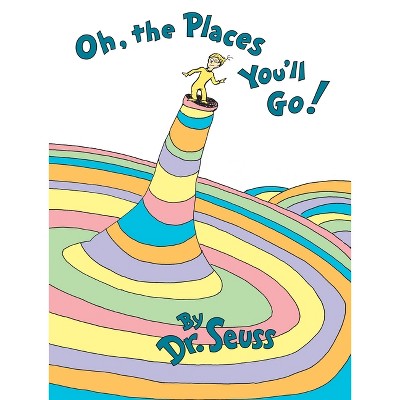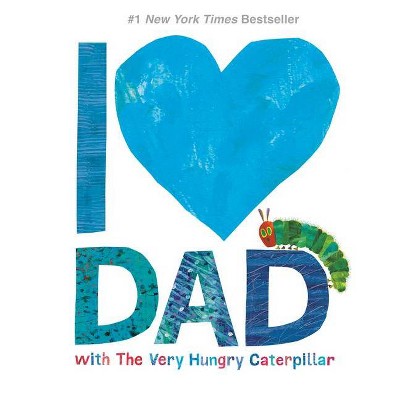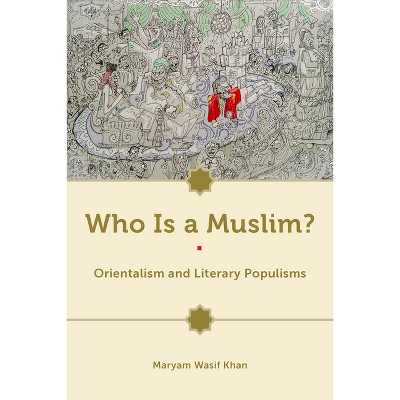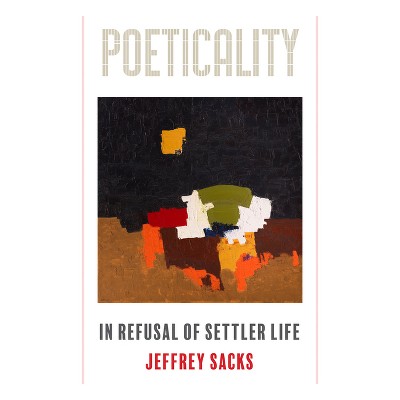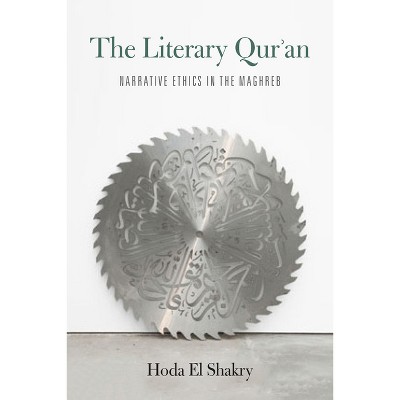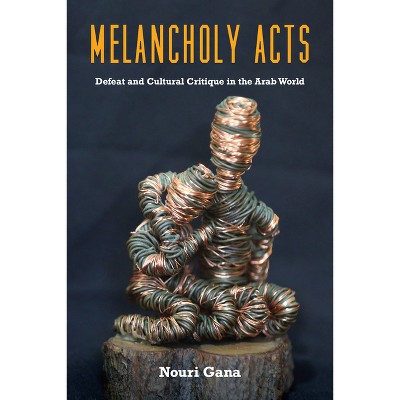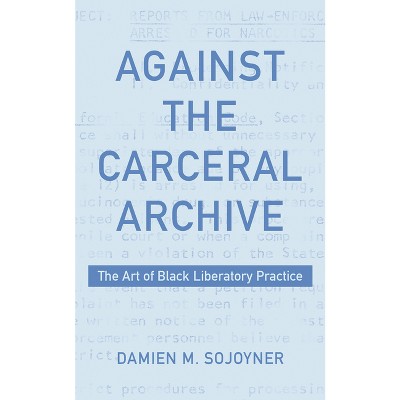$35.00 when purchased online
Target Online store #3991
About this item
Highlights
- Winner, 2024 L. Carl Brown AIMS Book Prize in North African StudiesHonorable Mention, 2024 MELA Book AwardsFinalist, 2024 ASA Best Book Prize Moroccan Other-Archives investigates how histories of exclusion and silencing are written and rewritten in a postcolonial context that lacks organized and accessible archives.
- About the Author: Brahim El Guabli is Assistant Professor of Arabic Studies and Comparative Literature at Williams College.
- 272 Pages
- Literary Criticism, Middle Eastern
Description
About the Book
"Moroccan Other-Archives investigates how histories of exclusion and silencing are written and rewritten in a postcolonial context that lacks organized and accessible archives. The book draws on cultural production concerning the "years of lead"-a period of authoritarianism and political violence between Morocco's independence in 1956 and the death of King Hassan II in 1999-to examine the transformative roles memory and trauma play in reconstructing stories of three historically marginalized groups in Moroccan history: Berbers/Imazighen, Jews, and political prisoners. The book shows how Moroccan cultural production has become an other-archive: a set of textual, sonic, embodied, and visual sites that recover real or reimagined voices of these formerly suppressed and silenced constituencies of Moroccan society. Combining theoretical discussions with close reading of literary works, the book reenvisions both archives and the nation in postcolonial Morocco. By producing other-archives, Moroccan cultural creators transform the losses state violence inflicted on society during the years of lead into a source of civic engagement and historiographical agency, enabling the writing of histories about those Moroccans who have been excluded from official documentation and state-sanctioned histories. The book is multilingual and interdisciplinary, examining primary sources in Amazigh/Berber, Arabic, Darija, and French, and drawing on memory studies, literary theory, archival studies, anthropology, and historiography. In addition to showing how other-archives are created and operate, El Guabli elaborates how language, gender, class, race, and geographical distribution are co-constitutive of a historical and archival unsilencing that is foundational to citizenship in Morocco today"--Book Synopsis
Winner, 2024 L. Carl Brown AIMS Book Prize in North African Studies
Honorable Mention, 2024 MELA Book Awards
Finalist, 2024 ASA Best Book Prize
From the Back Cover
"Moroccan Other-Archives will be of great interest to scholars of the region and the global south, of human rights studies, comparative literature, archives and library sciences."--Susan Slyomovics, UCLA
"El Guabli's book joins the growing field of 'archive studies' in questioning an official historiography that silences other histories not only by virtue of its methodological precepts but also by the partnership between the state apparatus and archives. As El Guabli shows, what has been written out of official archives have nevertheless left marks on unofficial memory and it is to the excavation this other archive that his work is dedicated. The book is written in a fluid and accessible prose that can be read with ease and pleasure."--Nasrin Qader, Northwestern University Moroccan Other-Archives investigates how histories of exclusion and silencing are written and rewritten in a postcolonial context that lacks organized and accessible archives. The book draws on cultural production concerning the "years of lead"--a period of authoritarianism and political violence between Morocco's independence in 1956 and the death of King Hassan II in 1999--to examine the transformative roles memory and trauma play in reconstructing stories of three historically marginalized groups in Moroccan history: Berbers/Imazighen, Jews, and political prisoners. The book shows how Moroccan cultural production has become an other-archive: a set of textual, sonic, embodied, and visual sites that recover real or reimagined voices of these formerly suppressed and silenced constituencies of Moroccan society. Combining theoretical discussions with close reading of literary works, the book reenvisions both archives and the nation in postcolonial Morocco. By producing other-archives, Moroccan cultural creators transform the losses state violence inflicted on society during the years of lead into a source of civic engagement and historiographical agency, enabling the writing of histories about those Moroccans who have been excluded from official documentation and state-sanctioned histories. The book is multilingual and interdisciplinary, examining primary sources in Amazigh/Berber, Arabic, Darija, and French, and drawing on memory studies, literary theory, archival studies, anthropology, and historiography. In addition to showing how other-archives are created and operate, El Guabli elaborates how language, gender, class, race, and geographical distribution are co-constitutive of a historical and archival unsilencing that is foundational to citizenship in Morocco today. Brahim El Guabli is Assistant Professor of Arabic Studies and Comparative Literature at Williams College.Review Quotes
This fascinating and ambitious book by Brahim El Guabli explores a Moroccan landscape of subversive and forgotten memories at the intersection of history and literature. . . It will no doubt be edifying to see if and how Moroccan historians respond to the challenges of El Guabli's unique book.-- "Research Africa Reviews"
Moroccan Other-Archives opens new terrain for the study of independent Morocco, and will certainly give specialists in the nation's literature, history, culture, and politics much fodder for discussion. Moreover, the project's deep engagement with questions of how history is written in the aftermath of state violence affords it a transnational bent: given the unfortunate abundance of episodes of state violence that have gone unaccounted for, the conceptual framework of other-archives has an analogical potential that is built to travel, and should.-- "Journal of North African Studies"
In his new monograph, Moroccan Other-Archives: History and Citizenship After State Violence, Brahim El Guabli explores the possibilities of recovering historical narratives in the absence of a formalized archive by looking to the literary and cultural production of a society faced with multiple losses.-- "ArabLit Quarterly"
[An] impassioned and innovative book. . .-- "H-Net Reviews"
El Guabli's book joins the growing field of 'archive studies' in questioning an official historiography that silences other histories not only by virtue of its methodological precepts but also by the partnership between the state apparatus and archives. As El Guabli shows, what has been written out of official archives has nevertheless left marks on unofficial memory and it is to the excavation of this other archive that his work is dedicated. The book is written in a fluid and accessible prose that can be read with ease and pleasure.---Nasrin Qader, Northwestern University
Moroccan Other-Archives will be of great interest to scholars of the region and the global south, of human rights studies, comparative literature, archives and library sciences.---Susan Slyomovics, UCLA
About the Author
Brahim El Guabli is Assistant Professor of Arabic Studies and Comparative Literature at Williams College.Dimensions (Overall): 8.9 Inches (H) x 6.0 Inches (W) x .8 Inches (D)
Weight: 1.0 Pounds
Suggested Age: 22 Years and Up
Number of Pages: 272
Genre: Literary Criticism
Sub-Genre: Middle Eastern
Publisher: Fordham University Press
Format: Paperback
Author: Brahim El Guabli
Language: English
Street Date: April 25, 2023
TCIN: 1004356326
UPC: 9781531501457
Item Number (DPCI): 247-40-0245
Origin: Made in the USA or Imported
If the item details above aren’t accurate or complete, we want to know about it.
Shipping details
Estimated ship dimensions: 0.8 inches length x 6 inches width x 8.9 inches height
Estimated ship weight: 1 pounds
We regret that this item cannot be shipped to PO Boxes.
This item cannot be shipped to the following locations: American Samoa (see also separate entry under AS), Guam (see also separate entry under GU), Northern Mariana Islands, Puerto Rico (see also separate entry under PR), United States Minor Outlying Islands, Virgin Islands, U.S., APO/FPO
Return details
This item can be returned to any Target store or Target.com.
This item must be returned within 90 days of the date it was purchased in store, shipped, delivered by a Shipt shopper, or made ready for pickup.
See the return policy for complete information.





